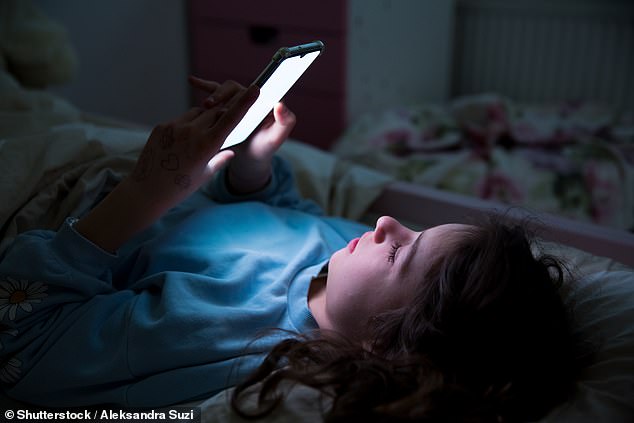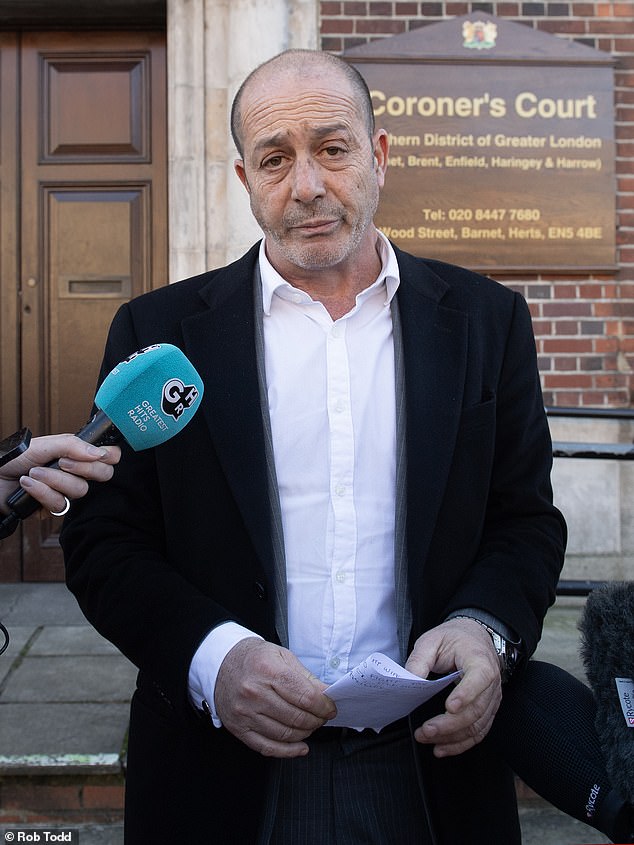Letting children use social media sites like Instagram and TikTok is putting them at risk of depression in their teen years, experts have suggested.
The link between mental health problems and social media use has long been established — but experts have said this is likely because unhappy children are more likely to turn to social media for distraction and comfort.
But now, a study of 12,000 9-12 year-olds based in the US seems to have poured cold water on this theory.
The researchers discovered that depressed nine and 10 year-olds were no more likely than happy ones to spend more time on social media as they approached age 13.
However, 12 and 13 year-olds who spent the most time on social media showed the highest rate of depressive symptoms.
On average, the daily time spent on social media increased from just seven minutes to over an hour once the children reached their early teens.
This, the scientists from the University of California San Francisco suggested, indicates that ‘social media may be contributing to the development of depressive symptoms’.
Dr Jason Nagata, an expert in paediatrics at the University of California San Francisco and leader of the new research, said prior research suggested cyber bullying and a lack of sleep could be two potential drivers of the problem.

Children who use social media are more likely to be depressed and online networks could be driving the problem, a study of 12,000 American youngsters suggests
It comes as official data suggests nearly a quarter of children in England have a mental disorder like depression, up from one in five a year prior.
The research, published in the online journal Jama Network Open, cited previous work showing children aged 11-to-12 who had experienced cyber bullying were more than two-and-half-times more likely to attempt suicide in a year compared to those who didn’t experience online harassment.
The researchers said parents and children unfortunately face ‘a catch-22’ situation regarding social media.
Despite mounting evidence of the harms it remains the primary way for them to connect and communicate with their peers.
Dr Nagata: ‘As a father of two young kids, I know that simply telling children to “get off your phone” doesn’t really work.’
However, he added there are steps parents can take to help protect their children.
‘Parents can lead by example with open, nonjudgmental conversations about screen use,’ he said.
‘Setting screen-free times for the whole family, such as during meals or before bed, can help build healthier digital habits for everyone, including adults.’
However British experts have criticised the study, saying the observed link between social media use and depression was ‘weak’.
Professor Chris Ferguson, an expert in psychology at Stetson University in Florida, said there was no need for parents to panic in response to the findings.
‘This study finds little evidence that earlier social media time is associated with later mental health,’ he said.
‘The effect sizes reported are so small they are likely to be due to statistical noise, not real effects.’
In the study, researchers examined data from 11,876 children who took part in the research project between 2016 and 2018—and followed them up for three years.
Social media use was calculated via an annual survey of the children, while depressive symptoms were measured via interviews with their parents or care provider.
The researchers said a limitation of this work was it required the children to be truthful about their social media use, which could not be guaranteed.

Mariano Janin whose daughter was targeted by male pupils over social media

The father of Mia Janin, 14, has called for cyber bullying to be made a specific crime after his daughter took her own life in March 2021
They added further research could examine how exactly social media causes depression—and if factors like time of day it’s used or the specific the device at play could be involved.
There have been increasing calls for more action to be taken on cyber bulling in the UK, with campaigners urging for ministers to make it a criminal offence.
One bereaved parent calling for change is Mariano Janin.
His daughter Mia, 14, took her own life in 2021 after been subjected to ‘hostile’ bullying by male students in-person and over social media.
Cyber bullying is not currently a specific offence in the UK with victims having to use existing legislation such as those used to protect against harassment.
